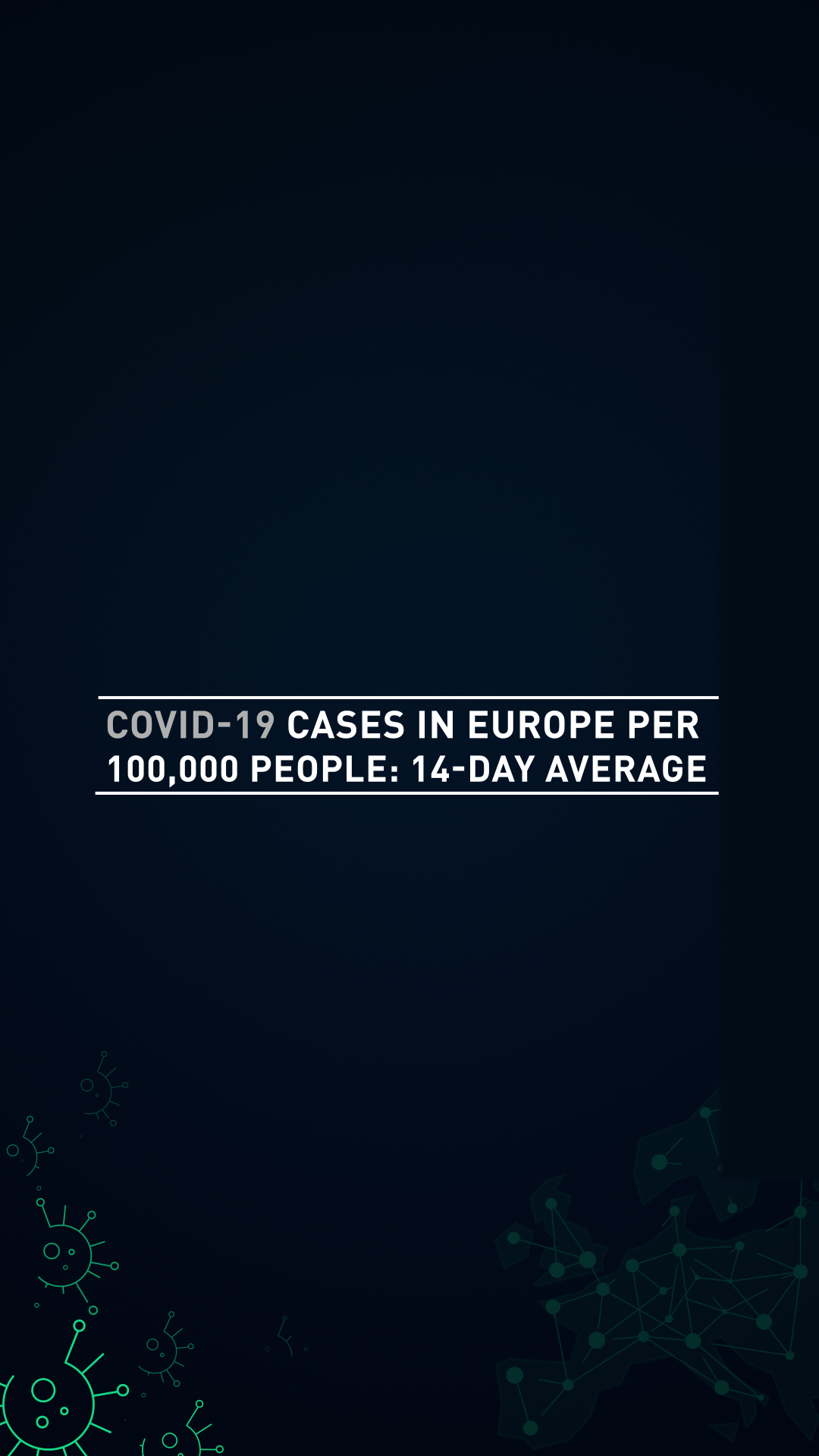TOP HEADLINES
- Italy has approved a new $3.4 billion aid package to help the economy recover.
- Bosnia's Prime Minister Zoran Tegeltija has tested positive for the virus and is self-isolating at home.
- The UK has banned travel from Denmark amid worries over the virus in minks. All non-British national or resident travelers who have been to Denmark in the past 14 days will be denied entry.
- Thousands of people took to the streets of Leipzig, Germany on Saturday to protest against the country's virus restrictions.
- Slovakian authorities hope to halve the country's number of cases via a program aiming to test the entire population.
- Europe's COVID-19 death toll has passed 300,000 and the number of infections has surpassed 12 million, according to a tally from news agency AFP.
- Portugal has declared a state of emergency to come into force next week, opening the door for the government to impose further restrictions.
- Imperial College London professor John Oldham has called for the country's test and trace system to be scrapped and replaced with a more local contact tracing service.
- The UK's first mass testing trial in Liverpool could be "an expensive mess that does more harm than good," health experts have warned.
- Norway's capital Oslo is to shut down theaters, cinemas, training centres and swimming pools from Monday in an attempt to slow the spread of the virus in the city.
- France's economic recovery is at risk amid a second nationwide lockdown, according to analysis published by Paris think-tank Institut Montaigne.

ACROSS EUROPE
Johannes Pleschberger in Bratislava
For the second weekend in a row, Slovakia has carried out coronavirus mass testing and officials are hailing a major success.
In the Slovakian districts where the entire population has already been tested twice, the infection rate has dropped by at least 55 percent, according to defense minister Jaroslav Nad.
Officially, participation is voluntary. However, those who refuse to be tested are subject to home isolation. The mass tests, which are unique in Europe, are organised by the Slovakian military.
On the previous weekend, two-thirds of the whole population were tested with 1.06 percent testing COVID-19 positive. For those tested negative, life in Slovakia returns to normal: shops and restaurants are open, but so are the borders. To prevent the virus from coming back by train or car, the government wants to reintroduce border control by November 15.
The opposition and the medical chamber of Slovakia have called the mass testing a waste of resources and said that the antigen tests being used are not very reliable.

Slovakia will continue its mass testing for a second consecutive week. /AP
Slovakia will continue its mass testing for a second consecutive week. /AP
Natalie Carney in Munich
Germany has again recorded a new record high, with a total of 21,506 new cases of COVID-19 on Friday according to the country's centre for disease control, the Robert Koch Institute.
As numbers continue to rise, the southern state of Bavaria is seeing a near-collapse of its laboratories due to its "generous testing strategy." Testing across the state has been very accessible, but this is leading to criticism from the Bavarian State Medical Association as laboratories are forced to push their limits.
However, the state premier is unlikely to change the policy. "It is a security offer for the citizens," said state secretary Klaus Holetschek from the Ministry of Health.
Meanwhile, large-scale protests against coronavirus lockdown measures have taken place in the central German city of Leipzig today. More than 16,000 people were expected to attend what has been touted as the big blow-out before the end of the year.
00:20

Portugal
Portugal's president Marcelo Rebelo de Sousa has declared a state of emergency during a televised address to the nation on Friday night.
The decree will come into force next week and will allow the government to impose further restrictions.
It will be "very limited and largely preventative" but "paves the way for new measures such as restricting traffic to certain times and certain days, in highest-risk municipalities," Rebelo de Sousa said.
The government is expected to hold an emergency meeting on Saturday to decide which measures could slow the surge in cases amid the second wave of the virus.
Meanwhile Portugal is one of a handful of countries that Germany has added to its 'risk areas,' warning against unnecessary travel.

Portugal has declared a state of emergency, with new restrictions set to be implemented next week. /AP
Portugal has declared a state of emergency, with new restrictions set to be implemented next week. /AP
FROM OUR GLOBAL COLLEAGUES
CGTN Europe special: The Alps: Timeless and changing
CGTN China: Chinese mainland reports 33 new COVID-19 cases, all from abroad
CGTN America: U.S economy adds more than 600,000 new jobs in October
CGTN Africa: Africa's confirmed COVID-19 cases pass 1.82 million-Africa CDC
Sign up here to get the COVID-19 Europe bulletin sent directly to your inbox
CGTN Europe has been providing in-depth coverage of the novel coronavirus story as it has unfolded. Here you can read the essential information about the crisis.